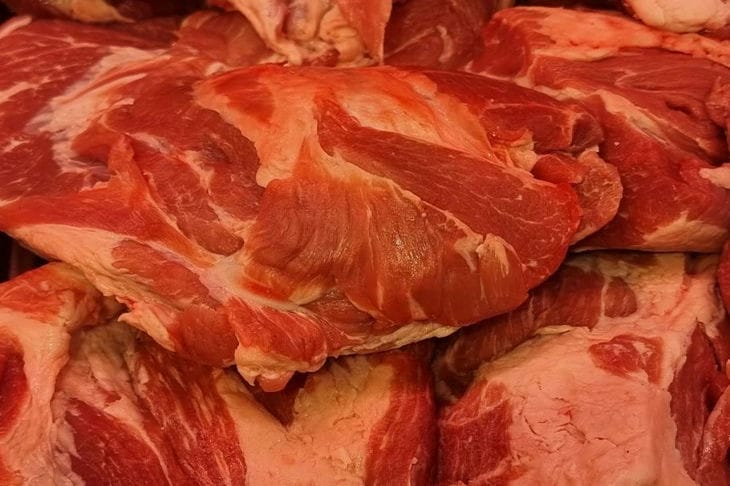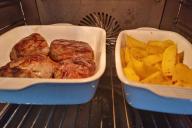Defrosting meat is an important step in preparing tasty and safe meals.
Many people are used to using a microwave for this purpose, but there are other effective methods.
Proper defrosting helps preserve the flavor, texture and nutrients of the food.

Defrosting in the refrigerator
The safest and most recommended way to defrost meat is to use the refrigerator. This method requires planning, but ensures the best preservation of the product quality.
To defrost, move the meat from the freezer to the bottom shelf of the refrigerator.
Defrosting time depends on the size and weight of the piece: small portions can defrost in 3-5 hours, large pieces will require 24-48 hours.
The advantages of this method are uniform defrosting and minimal risk of bacterial growth. However, it is important to remember that the meat should be cooked within 1-2 days after defrosting.
Defrost in cold water
For faster defrosting, you can use the cold water method. Place the meat in a sealed plastic bag and immerse it in a container of cold water.
It is important to change the water every 30 minutes to maintain a low temperature and speed up the defrosting process.
This method allows you to defrost a kilogram of meat in about an hour. After defrosting, the product should be cooked immediately. The method is effective, but requires constant attention to change the water.
Defrosting in air
Defrosting meat at room temperature is a common method, but is not recommended due to the risk of bacterial growth.
However, if time is short, this method can be used with precautions.
The meat should be placed on a plate and left on the kitchen counter, avoiding direct sunlight and heat sources.
It is important to monitor the process and not leave the meat at room temperature for more than two hours. After defrosting, the product must be cooked immediately.
Defrosting with a metal surface
An interesting and effective way to speed up defrosting is to use a metal surface.
Aluminum or copper have high thermal conductivity, which allows heat to be transferred to the frozen product more quickly.
This method requires a metal pan or skillet. The meat should be placed on the metal surface and left at room temperature.
This method significantly speeds up the defrosting process compared to conventional air defrosting.
Defrost in warm water
Although this method is not recommended by food safety experts, it can be used in a pinch when time is limited.
The meat is placed in a sealed bag and immersed in warm (not hot) water. The water temperature should be about 40°C.
It is important to remember that this method increases the risk of bacterial growth, so the meat should be cooked immediately after defrosting. Also, warm water can partially cook the outer layer of the meat, which can affect its texture and taste.
Tips for Safely Defrosting Meat
Regardless of the method chosen, there are several important rules to follow:
- Never re-thaw meat. This increases the risk of food poisoning.
- Always wash your hands and utensils after handling raw meat.
- Cook defrosted meat immediately or store in the refrigerator for no more than two days.
- Avoid using hot water to defrost as this may encourage bacterial growth.
When defrosting large pieces of meat, turn them periodically to ensure even defrosting.
The choice of defrosting method depends on the time available and the type of meat.
Planning ahead allows you to use the safest methods, such as defrosting in the refrigerator. If you need to defrost quickly, you can use the cold water method or use a metal surface.








